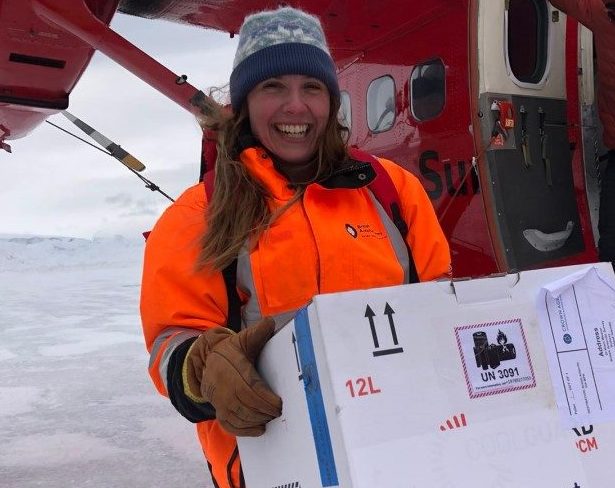Read the BBC article here
London, UK. A consignment of AstraZeneca vaccines has been received by the British Antarctic Survey (BAS) research facility in Rothera, Antarctica – the furthest south any British Covid-19 vaccine has yet travelled.
The enormous logistical feat was arranged by Greenshields Cowie, our parent company Crown Agents, and the Ministry of Defence (MoD) as part of the UK Foreign Commonwealth and Development Office’s (FCDO) commitment to supply vaccines to all the inhabited UK Overseas Territories.
The British Antarctic Territory is the last UK Overseas Territory to be supplied with a COVID-19 vaccine. The FCDO have overseen the mission to supply the British Overseas Territories with vaccines, as well as delivered donated vaccines to countries across the globe, now reaching every continent on the planet.
The vaccines were flown by the RAF from Brize Norton, via Senegal, to Mount Pleasant Airbase in the Falkland Islands. They were then taken by a BAS aircraft to the research station at Rothera, on the Antarctic Peninsula. The total voyage was almost 10,000 miles, covering 4 continents.
Throughout the journey, our logistical teams ensured the AstraZeneca vaccines were transported at controlled temperatures to keep the doses at their required 2 to 8 degrees Celsius. Temperature-controlled vans were used in the UK, and whilst onboard aircraft the vaccines were again monitored in a controlled environment by the crew. Prior to their final flight to Rothera, the vaccines were placed in a temperature-controlled container, before being stored in fridges at Rothera’s medical facility.
Not only was it a temperature sensitive operation, but also time sensitive. All logistics had to be carefully planned and executed to ensure the whole trip was completed in under 92 hours, to avoid spoilage of the vaccine. Contingency plans were put in place for adverse weather and transport interruptions.
Double doses of the vaccines will be available to the 23 members of the “overwintering” team at the research centre, who keep facilities running during the coldest winter months. Some of these staff include marine and terrestrial biologists, meteorologists, electronics engineers, a dive officer, doctor, and chef.
Remarking on the journey, Crown Agents’ Chief Executive Officer, Fergus Drake, stated,
“Since March last year we have worked with the FCDO to ship medical items to literally the ends of the earth to support the UK Overseas Territories during the pandemic. From Pitcairn Island to Tristan Da Cunha, our teams have overcome extreme logistical challenges to deliver medical equipment – and supporting the safe arrival of vaccines all the way to Antarctica has certainly been a highlight.
It’s fantastic to see the UK Government’s commitment to the people of the Overseas Territories. Only by sharing the vaccines across the globe will we be able to combat the pandemic, and that includes reaching those in even the most remote and sparsely populated regions.
We’re incredibly proud to be supporting those stationed out in Rothera who are working in such extreme temperature conditions on behalf of research and science.”
Background on Rothera
Rothera Research Station, the largest British Antarctic facility, supporting a wide range of BAS, UK university and international collaborative science programmes.
The station operates throughout the year. In summer, the population peaks at just over 100 people, while during the winter months, from April to mid-October, a 22-strong team continues the science work and maintains Rothera’s infrastructure.
Staff on station include marine and terrestrial biologists, meteorologists, electronics engineers, a dive officer and a boating officer, a chef, a doctor, vehicle and generator mechanics, electricians, plumbers, builders, field assistants, communications managers and a station management team.
Summer temperatures are typically between 0 and +5°C, and in winter range from –5°C to – 20°C. Because the station is just south of the Antarctic circle, it is light for 24 hours a day during summer, and for a few weeks in winter the sun never rises above the horizon.

